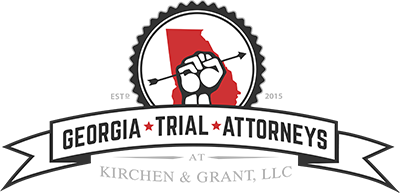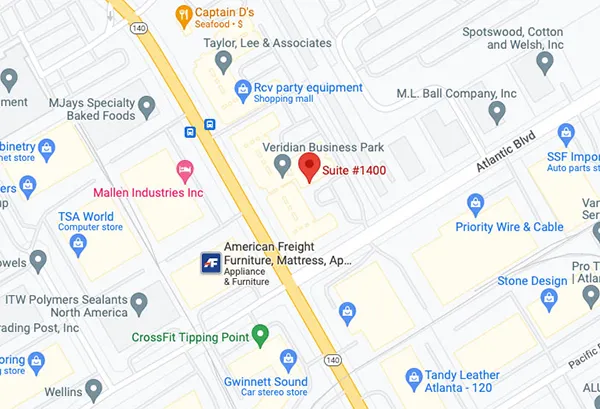Your Information
Stand firm against post-settlement surprises:
Your Guide to Filing a
Motion to Enforce Settlement
Protect Your Settlements By Filing A Motion To Enforce When After-The-Fact Conditions Arise.
Plaintiff’s attorneys are no strangers to the roadblocks and surprises that insurance companies and their defense attorneys throw up during litigation. However, these games often persist, even after a case has been settled.

Imagine this scenario (which I’m sure isn’t too hard): You negotiate a settlement with the defense attorney over the phone soon after your client's deposition. You send an email to the defense attorney and their adjuster to confirm this settlement. The adjuster assures you the check is on its way to the defense attorney. The defense attorney sends you the release, but the check is missing. Suddenly, they claim, “I can’t mail you the check until your client signs the release – it’s the carrier’s policy.”
This is a far too common practice in personal injury litigation, and unfortunately, many lawyers let it slide. Such a requirement is an additional, material term of the settlement that should not be sprung upon you after the fact. However, many defense attorneys might neglect to clarify this or argue that it's simply a standard 'policy.' Regardless of its alleged status as a policy, such terms must be discussed and agreed upon during the settlement, not afterward.
At Georgia Trial Attorneys, we stress the importance of confronting such surprise policies directly to attain justice for our clients. Our comprehensive template motion to enforce settlement offers detailed strategies for effectively handling these situations. With this resource, you'll be prepared to respond to surprise release requirements, securing fair post-settlement timelines for your clients. Our template motion to enforce settlement is:
- Practical: Our motion is a real-world-tested document derived from actual cases we've successfully litigated.
- Educational: It offers a deep dive into the subtleties of effectively responding to surprise policies.
- Empowering: Use this motion as a tool in your legal arsenal to ensure your clients receive their rightful settlements timely and without additional hurdles.
Avoid and discourage last-minute post-settlement surprises. Use our sample motion to force the insurance companies to do the right thing. Click 'Download Here' to get started. Equip yourself with this critical tool today:
PREVIEW:
IN THE STATE COURT OF HALL COUNTY
STATE OF GEORGIA
JOHN DOE,
PLAINTIFF,
v.
ROBERT SMITH,
DEFENDANT.
CIVIL ACTION
FILE NO.:
PLAINTIFF’S MOTION TO ENFORCE SETTLEMENT AGREEMENT
COMES NOW, Plaintiff, John Doe, in the above-styled civil action, and hereby files their Motion to Enforce Settlement Agreement. For grounds, Plaintiff shows that the Court that the parties entered into a written settlement agreement; thus an enforceable agreement was entered. Plaintiff therefore requests that the Court make that agreement the judgment of the Court. In support of their motion, Plaintiff relies on all pleadings filed in this case, the affidavit of counsel, written correspondence attached hereto, the brief in support of this motion and exhibits all incorporated herein and by reference specifically made a part of this Motion.
Submitted Wednesday, May 17, 2023.
Georgia Trial Attorneys
at Kirchen & Grant, LLC
/s/ James M. Grant, Esq.
James M. Grant
Georgia Bar No. 4682457
Attorney for Plaintiff
6825 Jimmy Carter Boulevard Suite 1400
Norcross, GA, 30071
Phone: (678) 667-8965
Fax: (833) 931-6633
Email: [email protected]
IN THE STATE COURT OF HALL COUNTY
STATE OF GEORGIA
PLAINTIFF’S BRIEF IN SUPPORT OF PLAINTIFF’S MOTION
TO ENFORCE SETTLEMENT AGREEMENT
COMES NOW, John Doe (hereinafter “Plaintiff”), by and through undersigned counsel, and files this Brief in Support of Plaintiff’s Motion to Enforce Settlement Agreement, showing the Court as follows: Statement of Facts
- The essential facts of this case are not in dispute.
- On [DATE], Plaintiff and Defendant were involved in a motor vehicle collision.
- On [DATE], Plaintiff filed a complaint for personal injury against Defendant(s).
- On [DATE], Defendant filed an answer.
- On [DATE], counsel for the parties corresponded via email regarding settlement negotiations.
That day, Counsel for the Plaintiff sent an email to Counsel for Defendant and the claims adjuster for Defendant’s insurance company, confirming that...
Need Support Or Have Questions?
We invite you to explore our other free resources and learn more about the art of drafting effective pleadings and letters. We firmly believe in the power of knowledge and the importance of sharing that knowledge with our peers.
If you have any questions, need additional resources, or require assistance with a case, don't hesitate to contact our team of skilled personal injury attorneys. Together, we can raise the bar in personal injury litigation and ensure justice is achieved in every case.


